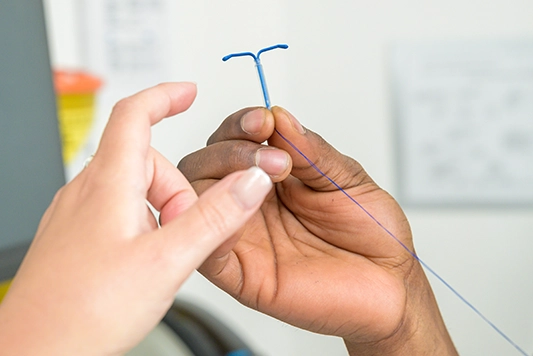At MSI Reproductive Choices, we know that it can sometimes be difficult to find accurate, quality information about contraception. In this blog, we asked MSI UK’s Kayla Healey (Registered Midwife and Faculty Registered Trainer) and Tanya Lane (Registered Nurse and Faculty Registered Trainer) to debunk some common myths with key facts about contraception.
Fact one: using contraception will not make it harder to get pregnant in the future
Using contraception does not affect your future fertility. Once you stop using contraception, your fertility should very quickly return to its normal levels. There is an exception to this rule in the Depo injection – which can delay fertility for up to a year after stopping.
Fact two: you do not need to take a break from contraception to give your body a rest
There is no medical need for a break from contraception. It is safe to continuously use hormonal contraception without any breaks or interruptions.
Changes in your medical history may mean that you need to change methods, but this will always be reviewed by your healthcare provider during your contraception appointment.
Fact three: the withdrawal method (pulling out) is not an effective form of contraception
The withdrawal method is not a reliable form of contraception. It is difficult to control ejaculation and pre-ejaculate fluid may contain sperm, which can lead to pregnancy.
Fact four: you do not need to take a break when using a combined method of contraception (the combined pill, patch or ring)
It is not dangerous to take combined methods of contraception continuously, without taking a break. If you would prefer not to have a break at all, you can continue to take the next pack of pills when you finish your current pack, or immediately replace your patch or ring. Taking these methods in this way can also help if you usually experience unpleasant side effects during your break.
Whilst it isn’t medically necessary to have a break, taking these methods continuously does mean that you have less control over when you have a bleed (you may occasionally still have a bleed, but won’t necessarily know when to expect this).
If you’d prefer to have more control over when you have a bleed, there are other ways of taking these methods available – for example, you could use the pill, patch or ring continuously for 9 weeks (using 3 packets of 21 pills, 3 rings or 9 patches) and then have a break for 4 or 7 days (this is called tricycling).
Fact five: emergency contraception does not cause an abortion
Emergency contraception does not cause abortion. Emergency contraception prevents a pregnancy, whilst the abortion pill ends an existing pregnancy.
Emergency contraception works by delaying or preventing ovulation, fertilization, or implantation of an egg. It is not effective once a pregnancy has already occurred. The most effective form of emergency contraception is a copper IUD which can be used up to 5 days after unprotected sex!
You can read more about the difference between emergency contraception and abortion here: What is the difference between the ‘morning after pill’ and the abortion pill?
Fact six: you can get still pregnant while breastfeeding
It is possible to fall pregnant while breastfeeding. To use breastfeeding as a form of contraception you should be less than 6 months’ postpartum, shouldn’t have had your periods back since birth and should be exclusively breastfeeding (day and night).
Fact seven: there are pain relief options when you have a coil fitted
Local anaesthetic can greatly reduce the discomfort felt during a coil insertion. Check with your provider before your appointment if they offer anaesthetic for the procedure. If they don’t and it is something you would like – it may be worth reaching out to other providers in your local area. Here at MSI, we offer local anaesthetic for all our coil fittings.
To read more about coil fitting and the anaesthetic options offered by MSI UK, read our blog on how to prepare for a contraception appointment.
Fact eight: contraception can help with things like heavy periods and symptoms of the menopause
Contraception is not only for avoiding an unwanted pregnancy. There are many other potential benefits that the various options of contraception can offer like helping with heavy menstrual bleeding, supporting with menopause symptoms, and improving skin. Speak with your provider about what the different methods of contraception could help you with!
Fact nine: for most methods, you can start a new method of contraception at any time in your cycle
You can start most contraceptive methods at any time in your cycle. This means most people don’t have to delay starting a method until their next cycle!
Read more
To learn more about contraception, the different methods and how to prepare for a contraception appointment, click on the links below:
- Short-acting methods of contraception (the combined pill, the mini pill, the ring, the patch, and condoms)
- Long-acting methods of contraception (the hormonal coil or IUS, the non-hormonal coil or IUD, the injection and the implant)
- How to prepare for a contraception appointment
To find out more about the range of contraceptive methods available and get advice on which method might be right for you, check out our online contraceptive counsellor, ‘Choice’.
To learn how you can support access to contraception around the world, check out our Contraception: the unfinished revolution campaign.











































